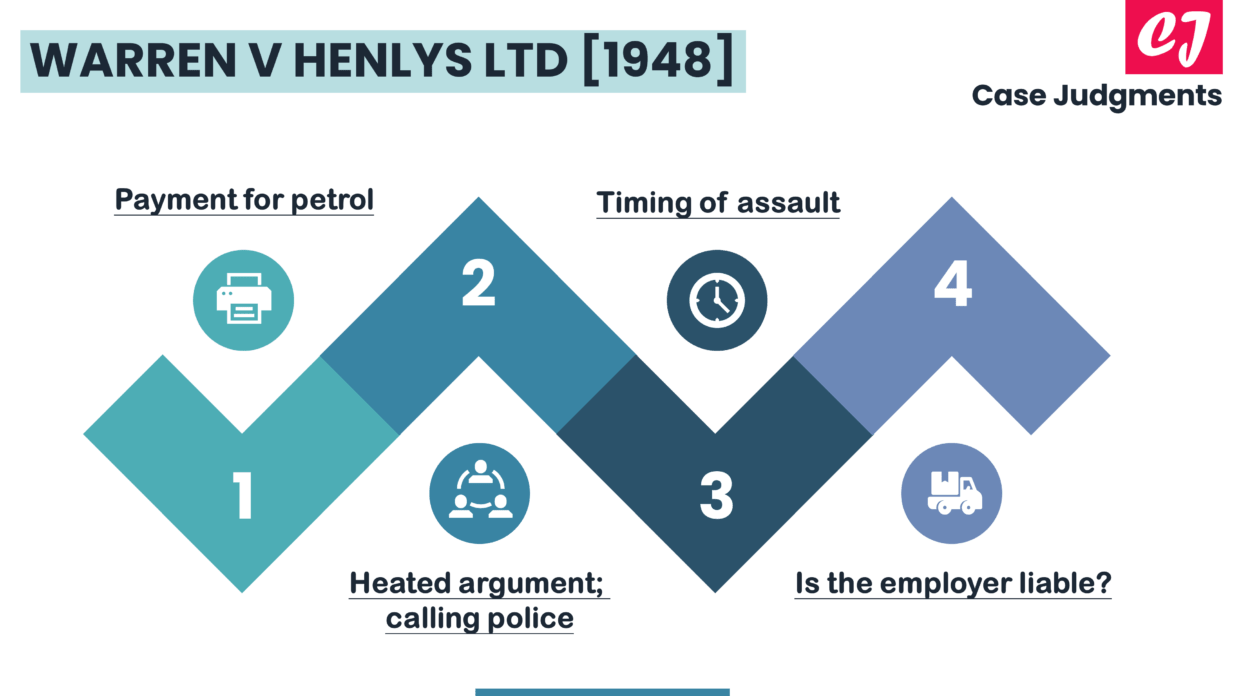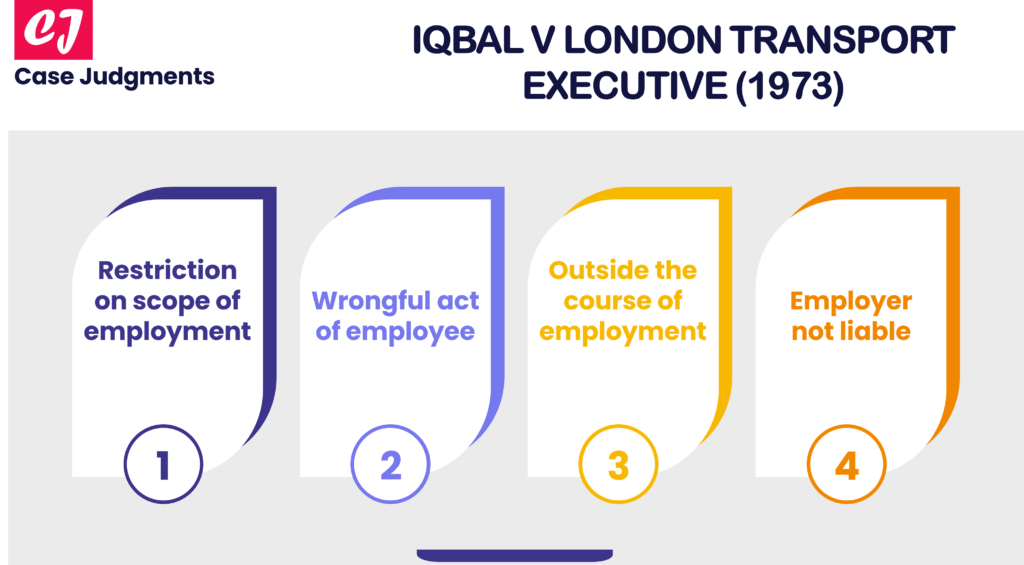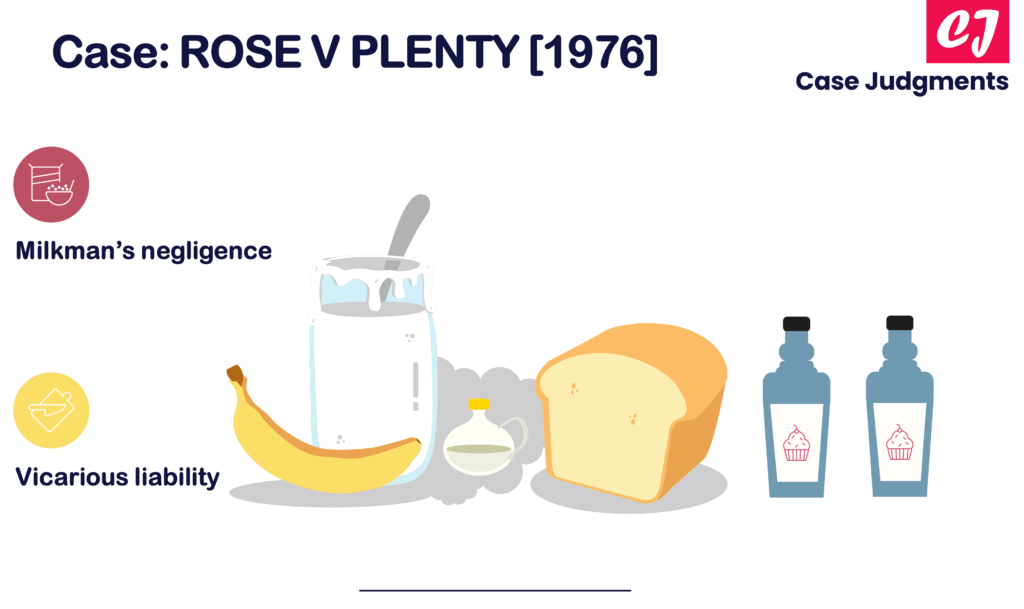
A Quick Summary of Warren v Henlys Ltd [1948]
Case name & citation: Warren v Henlys Ltd [1948] 2 All ER 935
Court and jurisdiction: King’s Bench, England and Wales
Year of the case: 1948
The learned judge: Hilbery J
Area of law: Vicarious liability; liability of an employer
What does the case deal with?
Warren v Henlys Ltd [1948] is a UK tort law case on the vicarious liability of employers.
Facts of the case (Warren v Henlys Ltd)
A customer at a petrol station engaged in a heated argument with the attendant, who erroneously suspected him of attempting to make off without payment. The customer was angered by the manner in which he was addressed by the petrol station attendant. After paying for the petrol, the customer spotted a passing police vehicle and drove off in pursuit. He expressed his displeasure with the attendant’s behaviour to the police officer, and he managed to convince the officer to accompany him back to the petrol station. After listening to both men, the officer indicated that he did not believe it was a matter that required the assistance of the police. In response, the customer stated that he would report the attendant to his employer. The officer was about to leave when the attendant punched the customer in the face and knocked him to the ground.
The customer brought legal action against the employer (the petrol company).
Issue that arose
Could the petrol company be vicariously held liable for the assault by the attendant?
Judgment of the Court in Warren v Henlys Ltd
According to the judgment made by Hilbery J, the assault was not carried out in the course of the attendant’s employment. By the time the assault took place, the customer’s business with the petrol station had already come to an end, the payment for the petrol had been made, and the customer had left the premises. When he came back with the police officer, the reason was to lodge a personal complaint about the attendant, who he felt had treated him inappropriately. On being told that the customer was going to report him to his employer, the attendant responded in a violent manner; however, there was no basis for holding the employer vicariously liable for the attendant’s that behaviour (assault).
The judge did the right thing by deciding to dismiss the customer’s claim against the petrol station. At the time of the incident, the plaintiff’s relationship with the attendant had changed from that of a customer and representative of the petrol station to that of a person making a complaint to the police and the subject of the complaint.
Therefore, in Warren v Henlys, any misbehaviour by the petrol station attendant, in his capacity as a petrol station attendant, was past history by the time that he assaulted the claimant. In the meantime, the claimant had left the scene, and the context in which the assault occurred was that he had returned with the police officer to make a complaint against the attendant.
Thus, the employer was not liable.
Key point
In this case, the short gap between the initial argument and the subsequent assault (in the presence of the police officer with whom the claimant had returned to the scene) has been viewed as a significant factor pointing away from vicarious liability.
List of references:
- https://www.supremecourt.uk/cases/docs/uksc-2014-0087-judgment.pdf
- https://www.newlawjournal.co.uk/docs/default-source/article_files/010_nlj_7818_specialist_employment_pigott.pdf?sfvrsn=93e51ed2_2
- https://www.lexology.com/library/detail.aspx?g=77d72943-f442-4418-9bf8-0b3817138522
You might also like:
More from tort law:

